Weaving Knowledges: Co-woven Seminar Reflection, Poem and Recording
Weaving knowledge is a practice more widespread and subtle than we might first assume. Even when we believe we are not weaving, we often are—within our academic relationships, through moments of friction and solidarity, we discover new names and forms for the weaving work we undertake. The act of weaving knowledges extends beyond structured settings; it takes place quietly and invisibly, in the liminal spaces between field and desk, between words and silences. It emerges in solitary reflection, in the uncertainties of dialogue, and sometimes as resistance to dominant research logics. This weaving is omnipresent, shaping how we relate, inquire, and imagine the world around us.
Our recent joint seminar “Two Doors in Participatory Research in the Colombian Amazon - Multi-Stakeholder Engagement and Indigenous Knowledge” followed by a roundtable on Weaving Knowledges offered a vital opportunity to break through the isolation often imposed by academic bubbles. It was a space for collective sense-making, allowing participants to find words for what they do and to connect with others engaged in similar, sometimes unspoken, weaving. Yet, the seminar also made clear that weaving is not always harmonious. Differences—among knowledges, perspectives, or institutional priorities—can generate tensions, conflicts, and competing interests, especially in settings with multiple actors. Within such processes, important questions arise, particularly when engaging with Indigenous Peoples and Traditional Communities: What are we doing, for whom, and at what cost? Without careful, critical practice, knowledge co-production can slip into extraction, repeating colonial power structures under participatory guises. The seminar thus reinforced the need for a decolonial, justice-oriented approach to co-production—one that deliberately avoids reproducing colonial patterns and instead creates space for epistemic justice and the elevation of marginalized voices.
Discussions at the seminar centred on the co-production and pluralism of knowledge, especially as they relate to environmental management and sustainability in Sweden and the Global South. Participants brought forth a rich array of approaches, including the Multiple Evidence Base (MEB) approach, and stressed the significance of local knowledge and traditional practices. The gathering highlighted the essential role of various actors—researchers, community members, Indigenous groups—in navigating the complexities of co-producing knowledge to address multifaceted challenges. Themes of synthesis and unpacking of diverse knowledge systems, collective action, and the navigation of governance and institutional frameworks were woven throughout the event.
Looking to the future, participants repeatedly emphasized the importance of sustained dialogue and collaboration. This includes integrating intergenerational perspectives, fostering partnerships across disciplines and communities, and protecting Indigenous Territorial Land Rights. Efforts will focus on robust knowledge synthesis—refining methods like the MEB approach to better integrate various knowledge systems. There is also an explicit intent to connect knowledge co-production to practical collective action, using participatory tools like walking-workshops and scenario building to support transformation within socio-ecological landscapes. The collective reflections among the participants, shared in the roundtable, acknowledged the complexity and locally situated nature of these systems, calling for approaches and models grounded in specific contexts. Finally, key reflections on the tangible roles and impacts of governance structures, and the necessity of regular, critical reflection on tradition and the process of “unlearning”—especially within farming and Indigenous communities— was discussed so that traditional knowledge can be rightfully valued and integrated while allowing space to question established viewpoints.
The co-organizers jointly created a safe space where openness, criticality, and creativity were collected at the Weaving Knowledges seminar reaffirming the need for ongoing, pluralistic efforts in knowledge production. By nurturing genuine collaboration and critical reflection, the “Weaving Knowledges” workstream launched at the seminar is inviting all participants and others interested to continue weaving, even in the spaces where knowledge is quietest.
The day’s contemplations and connections found poetic expression in the following piece, written by the moderator of the day Taís Sonetti Gonzalez, which resonated as a closing reflection on both the risks and rewards of the weaving journey:
~ Weavers ~
We weave,
even in silence—
threads of thought,
frayed by distance,
mended in dialogue.
In quiet corners,
knowledge breathes.
Unseen,
yet present
in every tension,
in every thread pulled taut
between intention and impact.
Not all weavings
are soft.
Some snag
on power,
on histories
unspoken.
Still, we weave—
with (and the need to) care,
with questions,
with the ache
of not knowing.
To weave is to risk.
It involves co-creating,
unlearning,
being undone,
and being woven anew.
About the seminar and recording:
Watch the recording of the seminar on Focali You Tube
Read more about the seminar in the seminar invitation and below the photos from the day
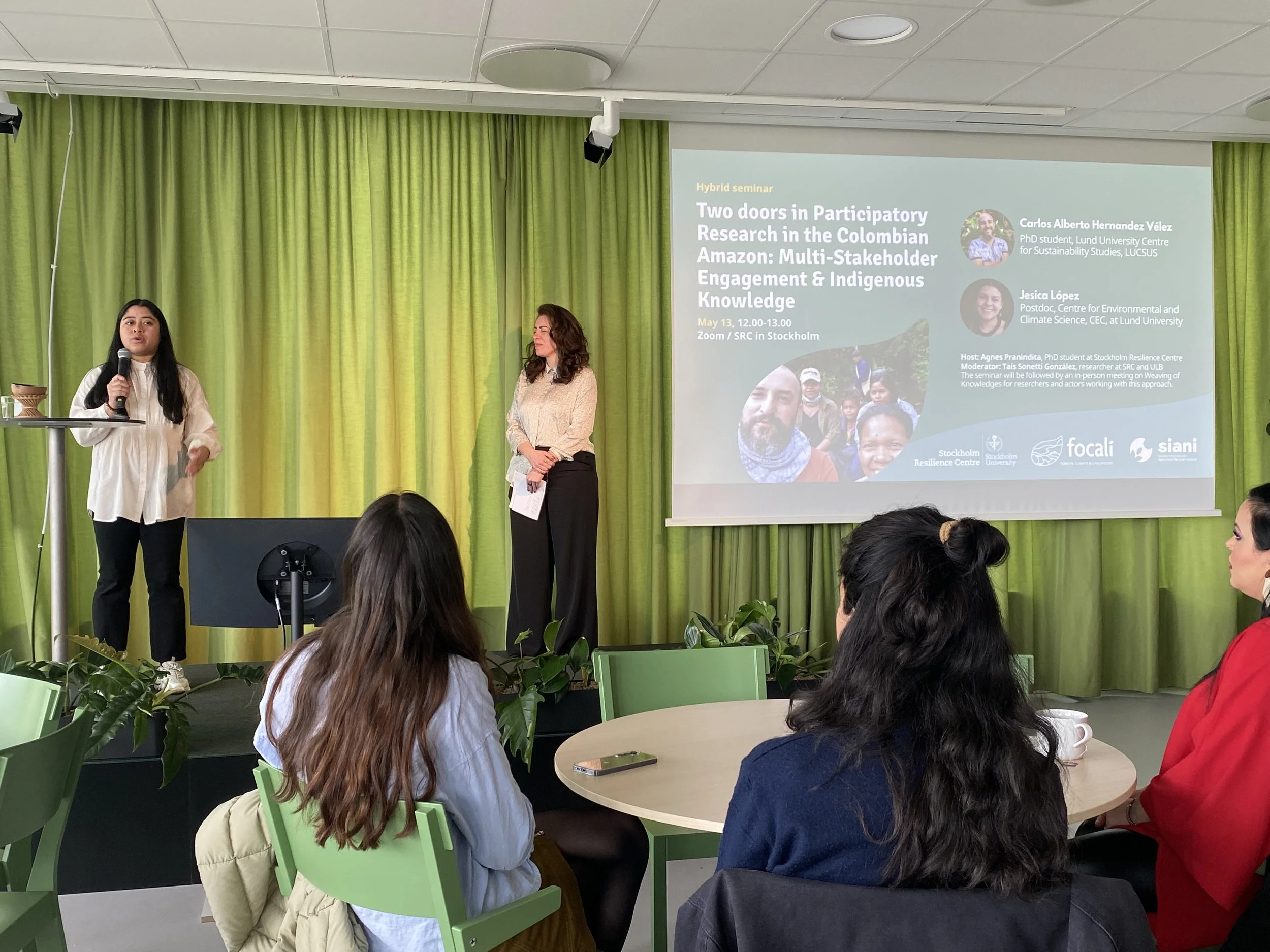
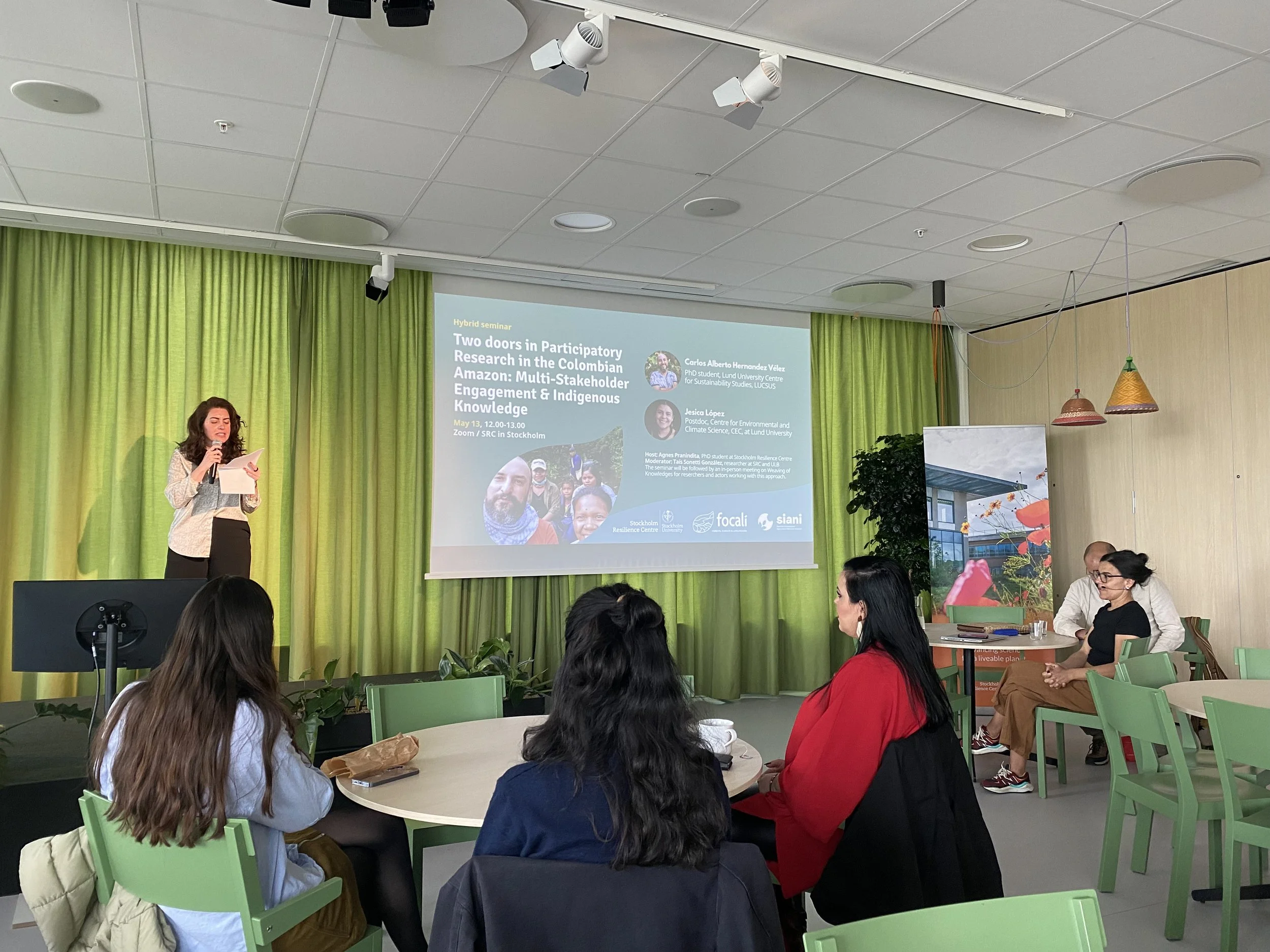
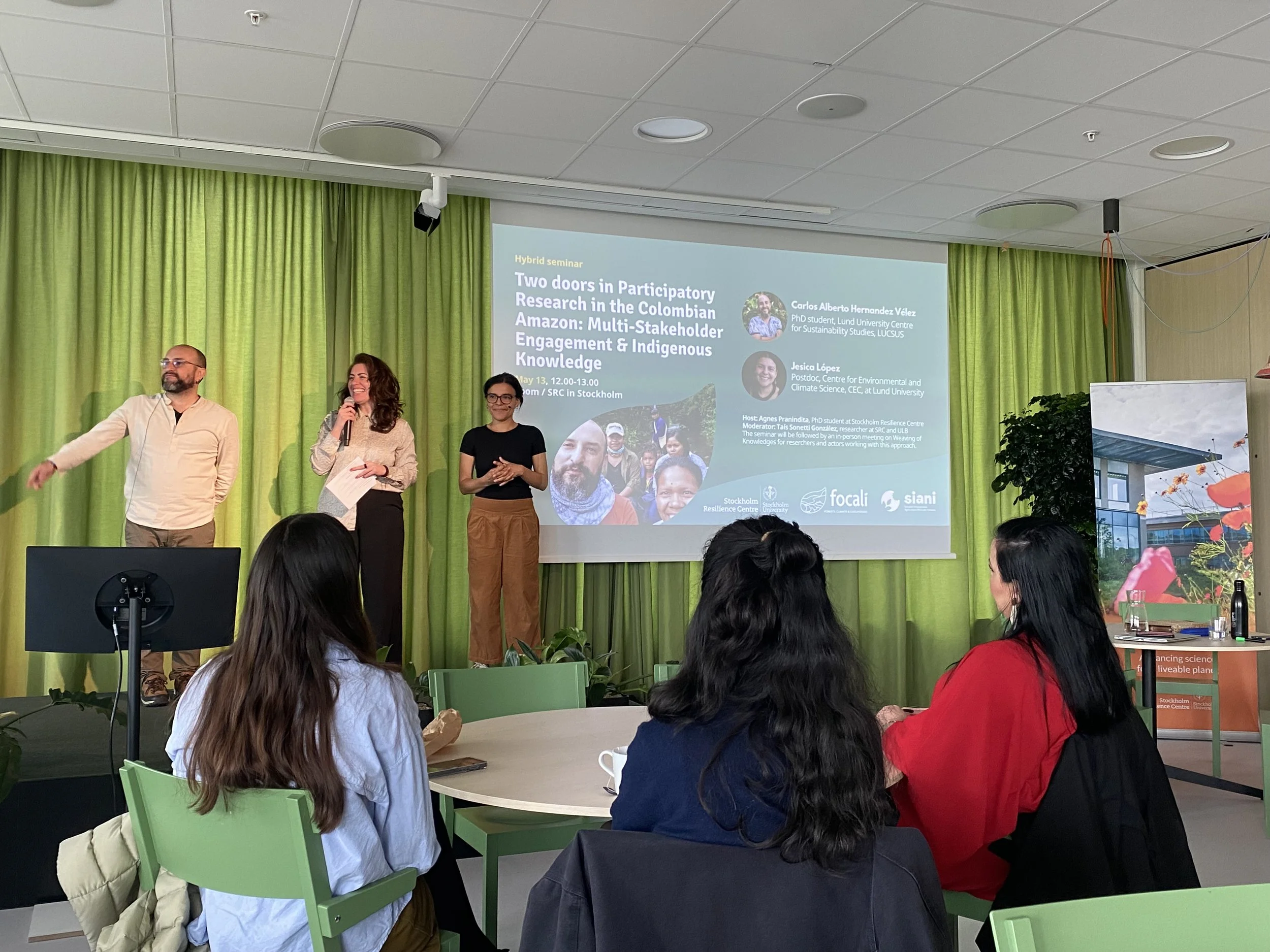
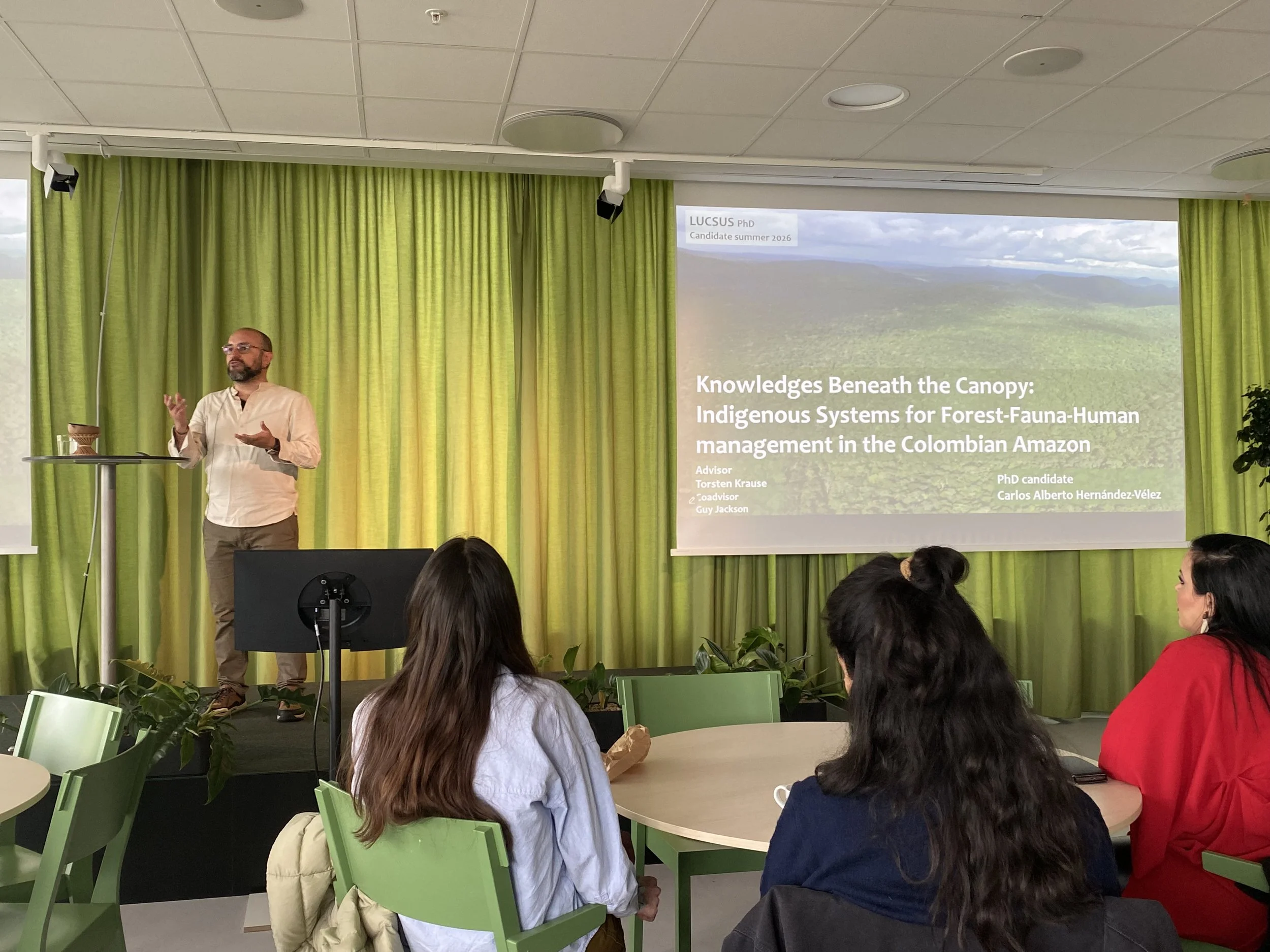
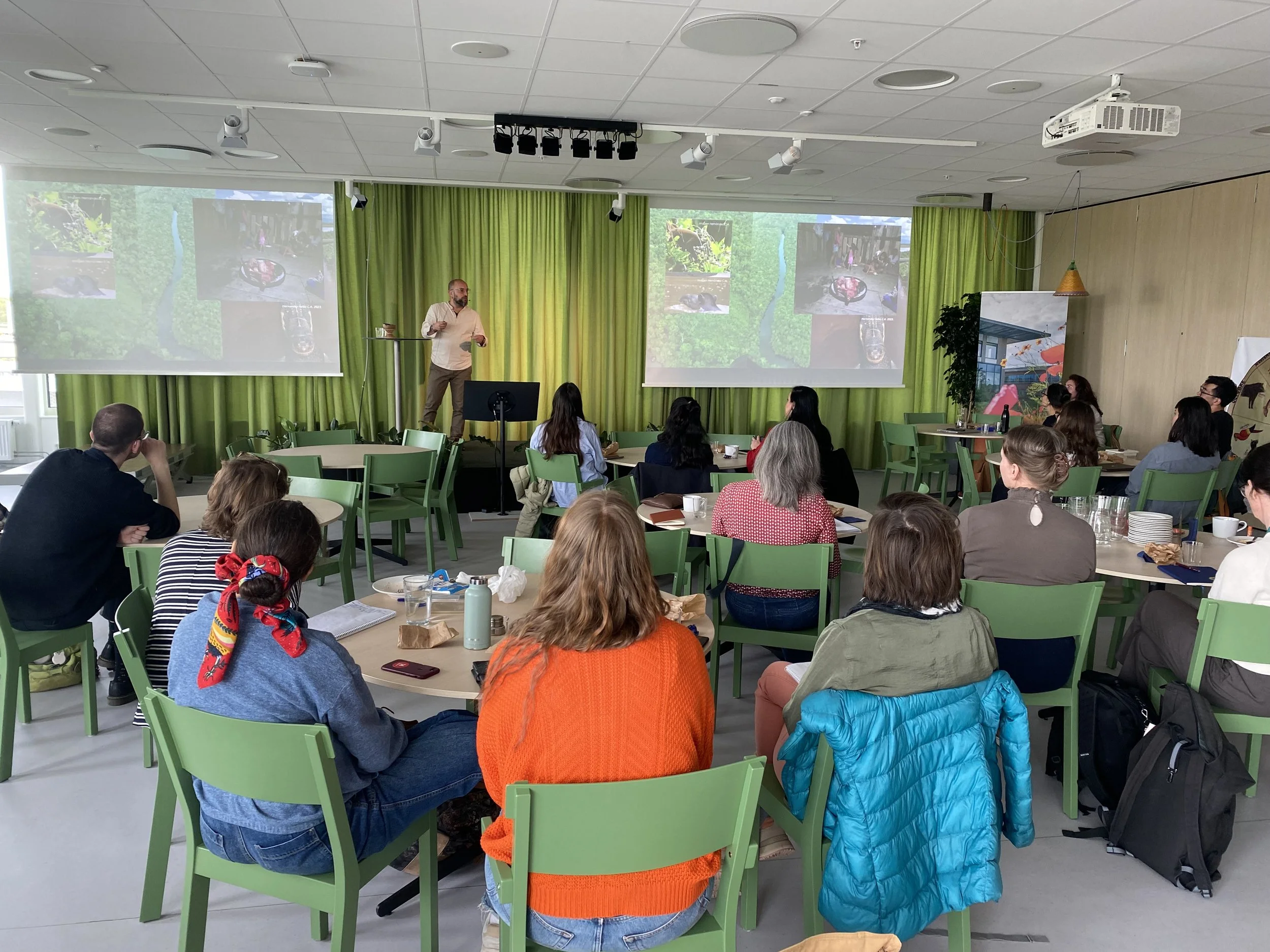

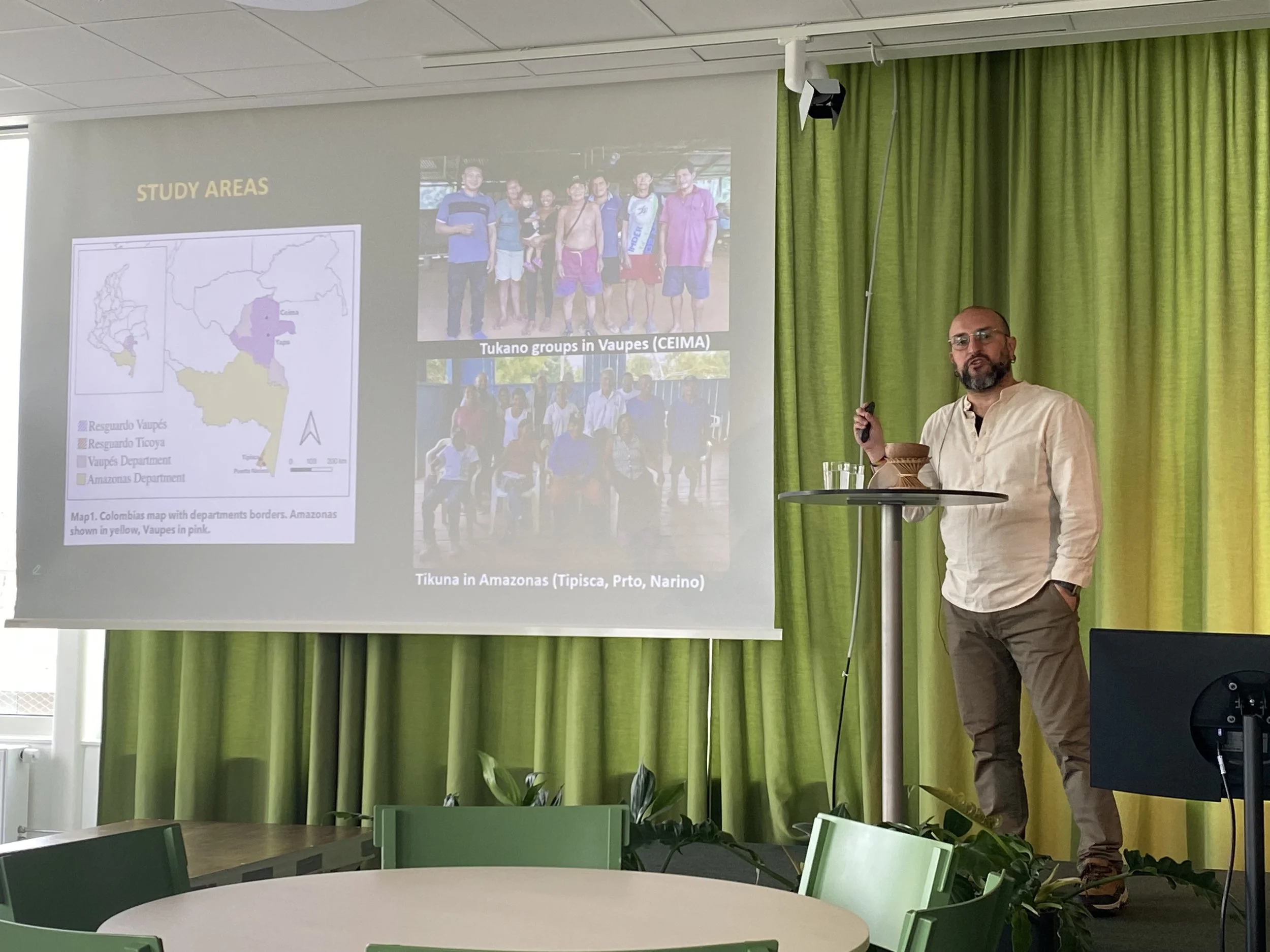
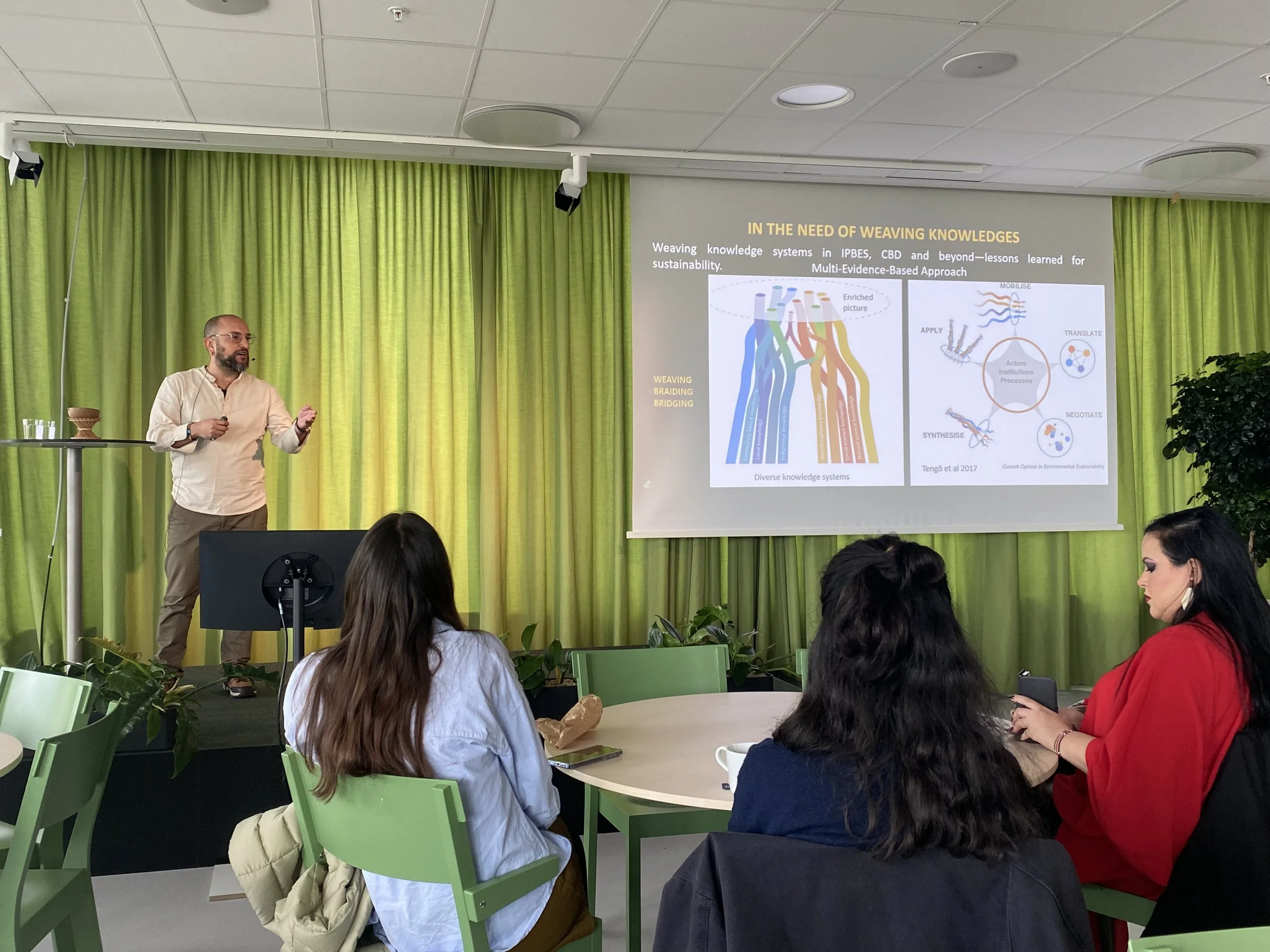
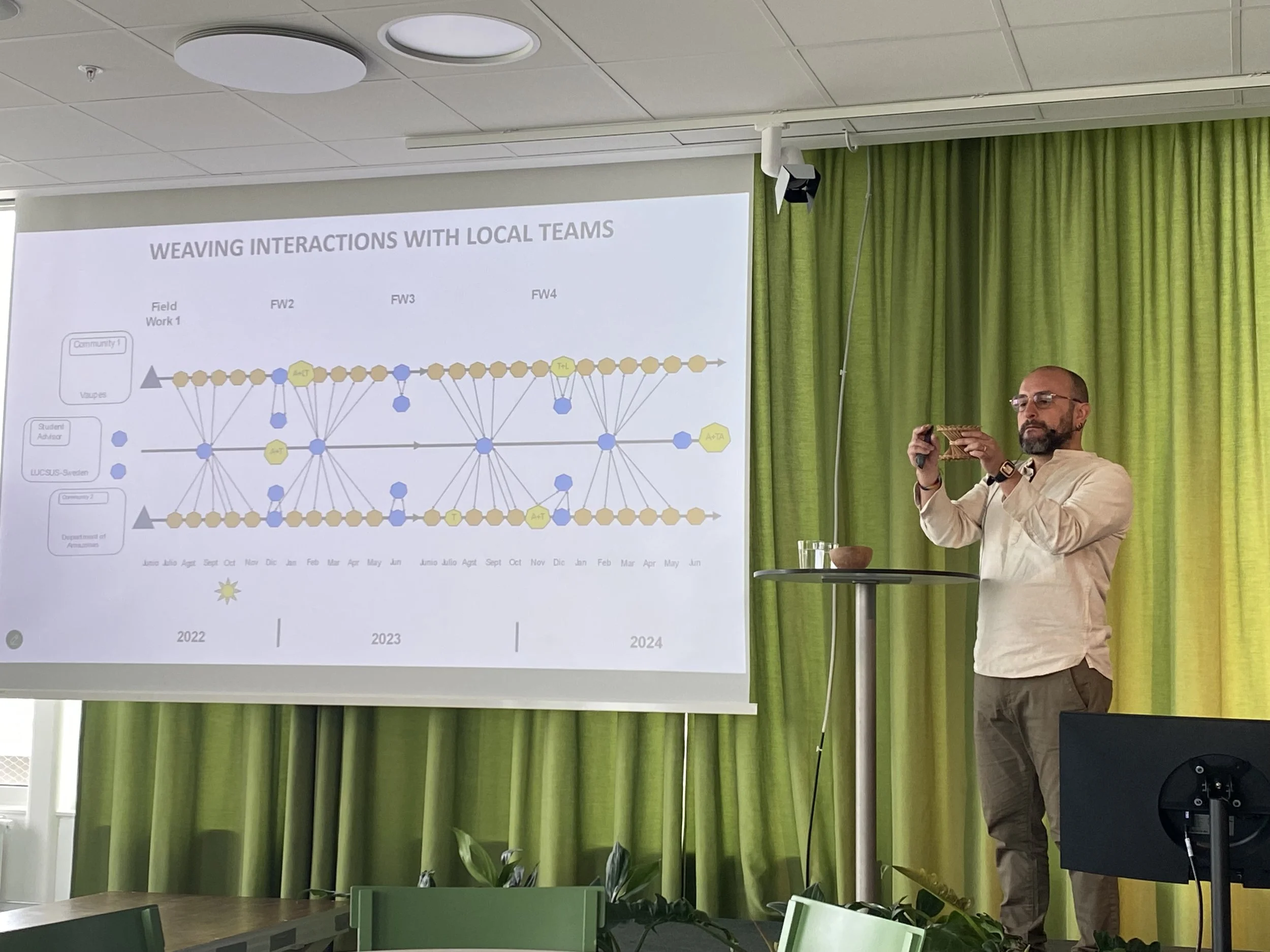
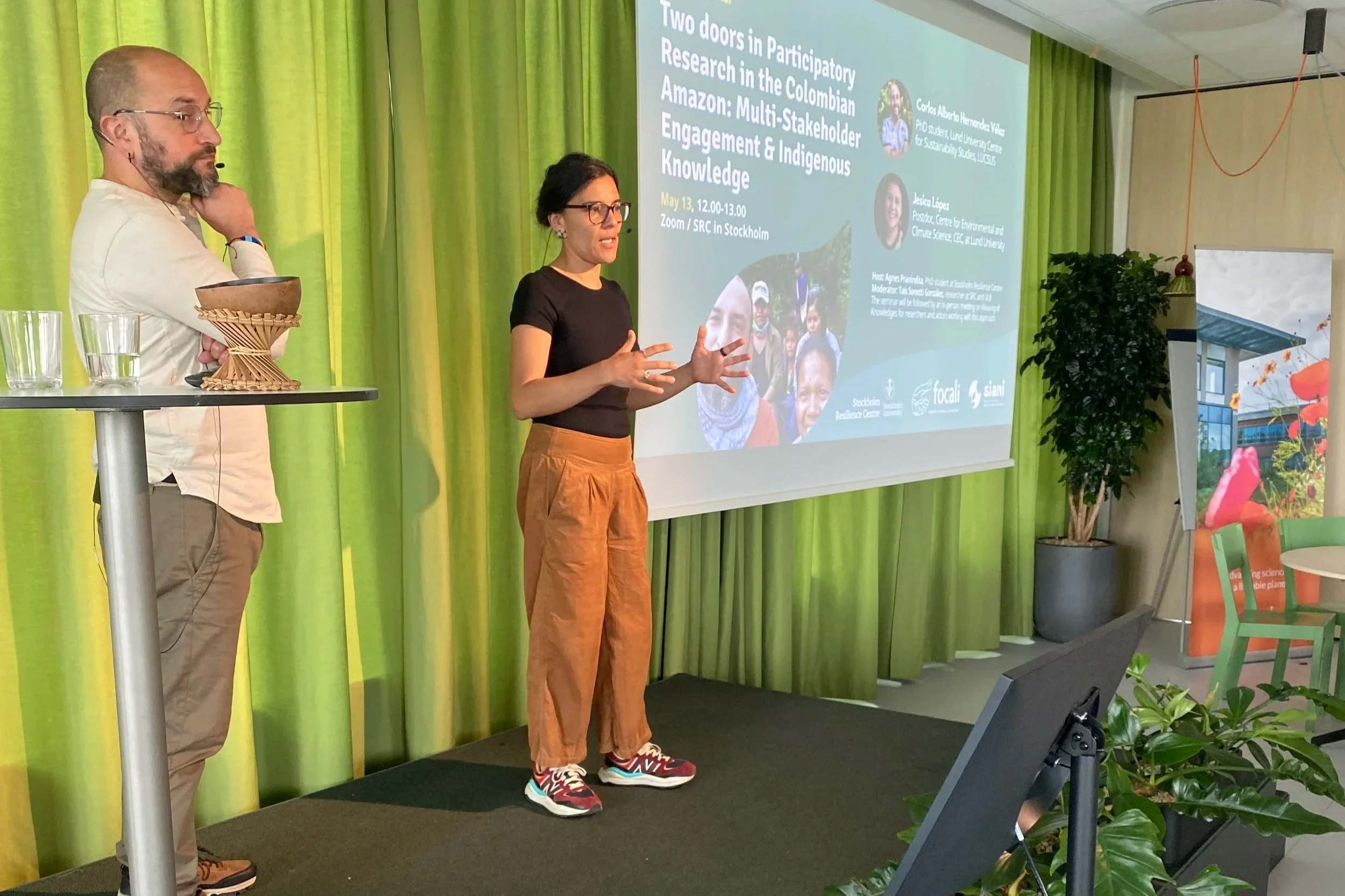
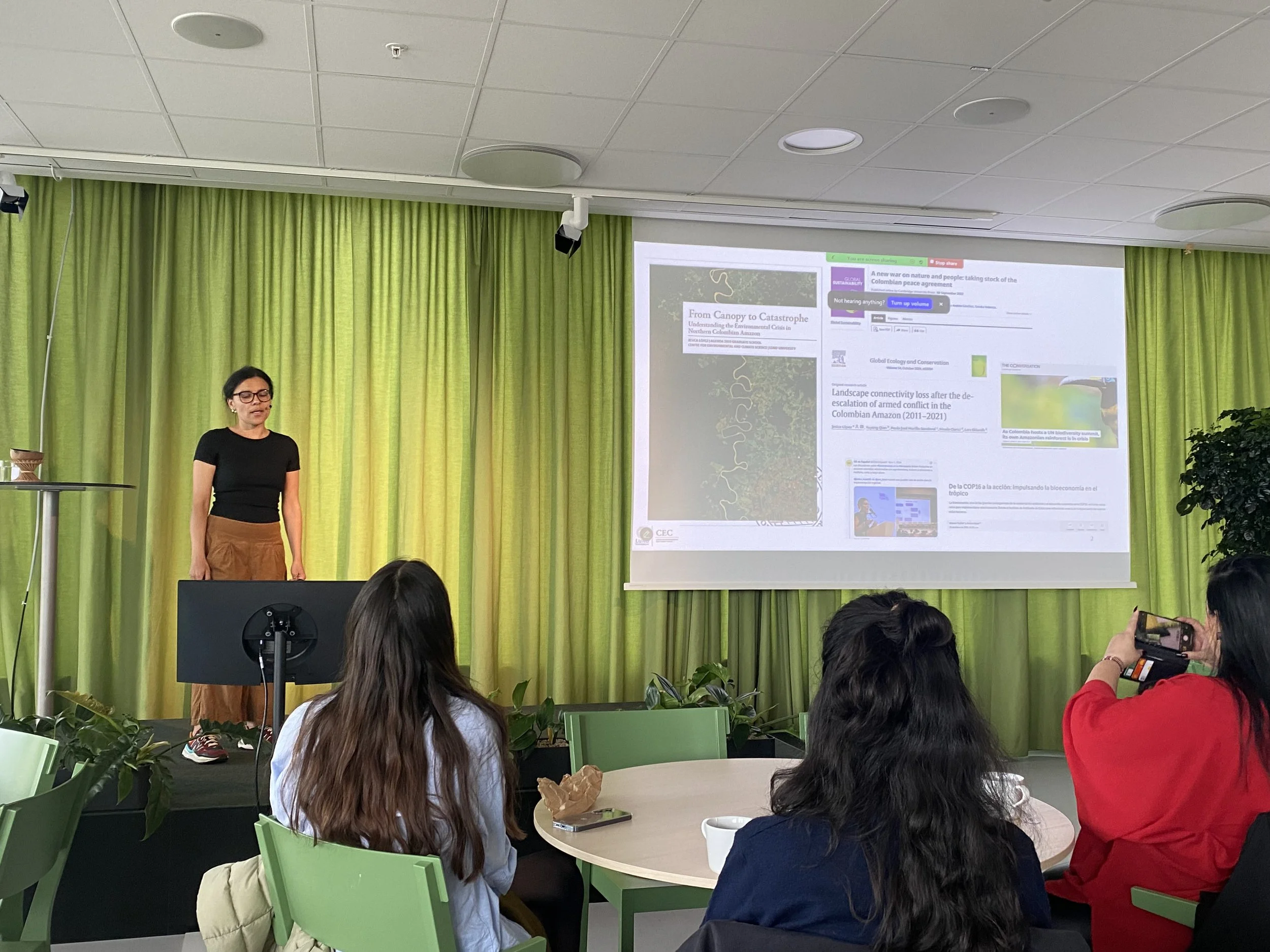
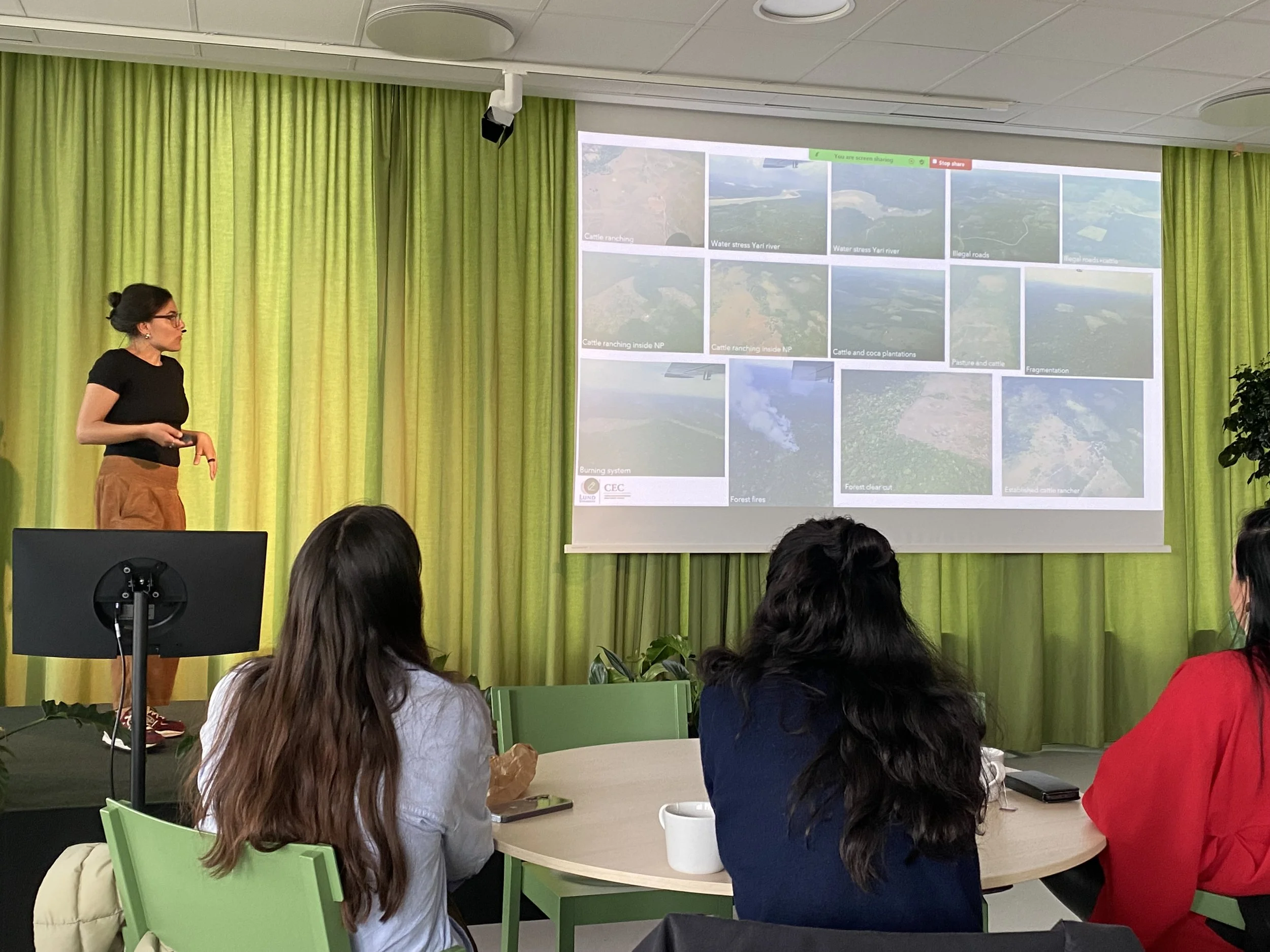
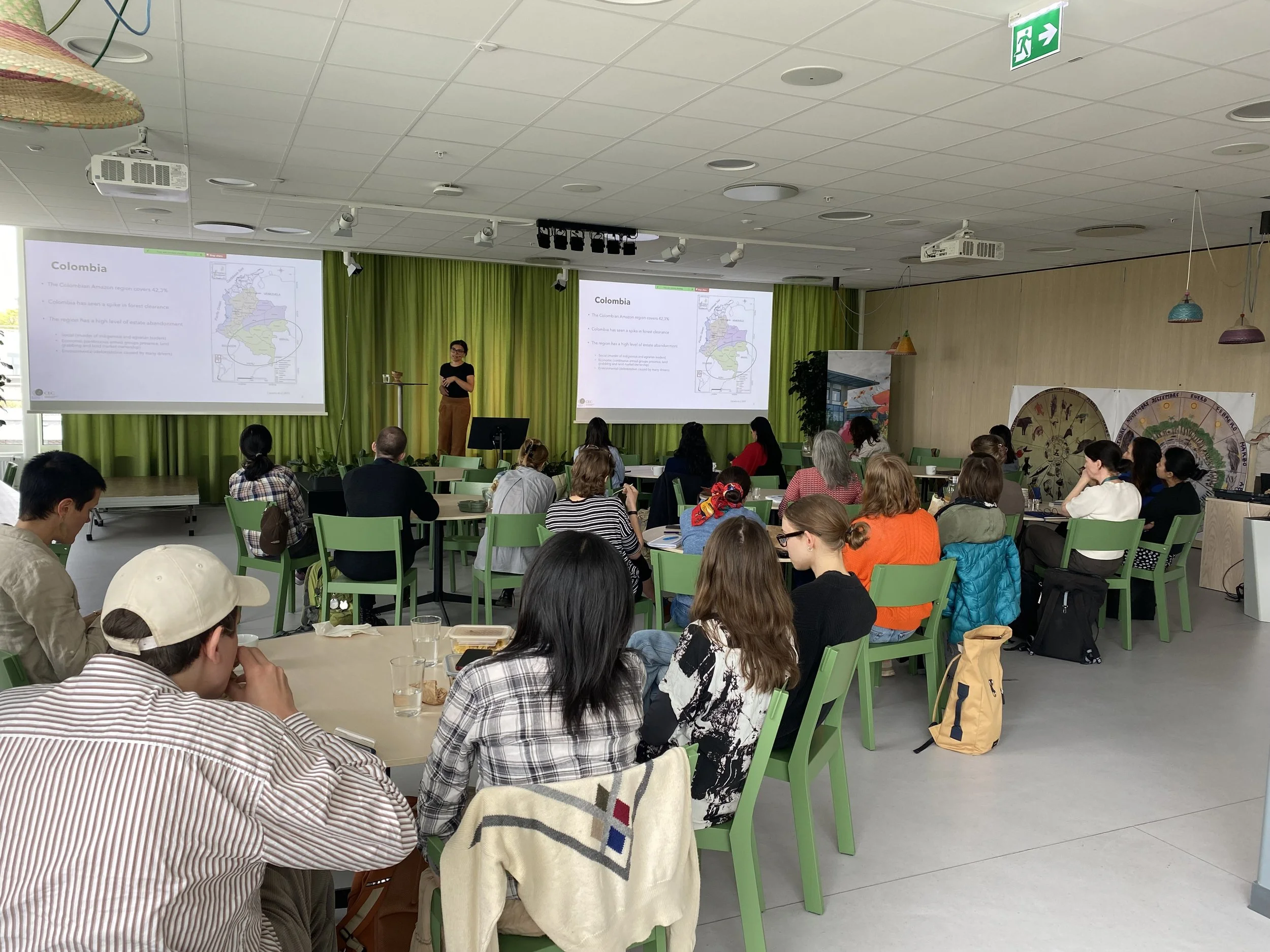
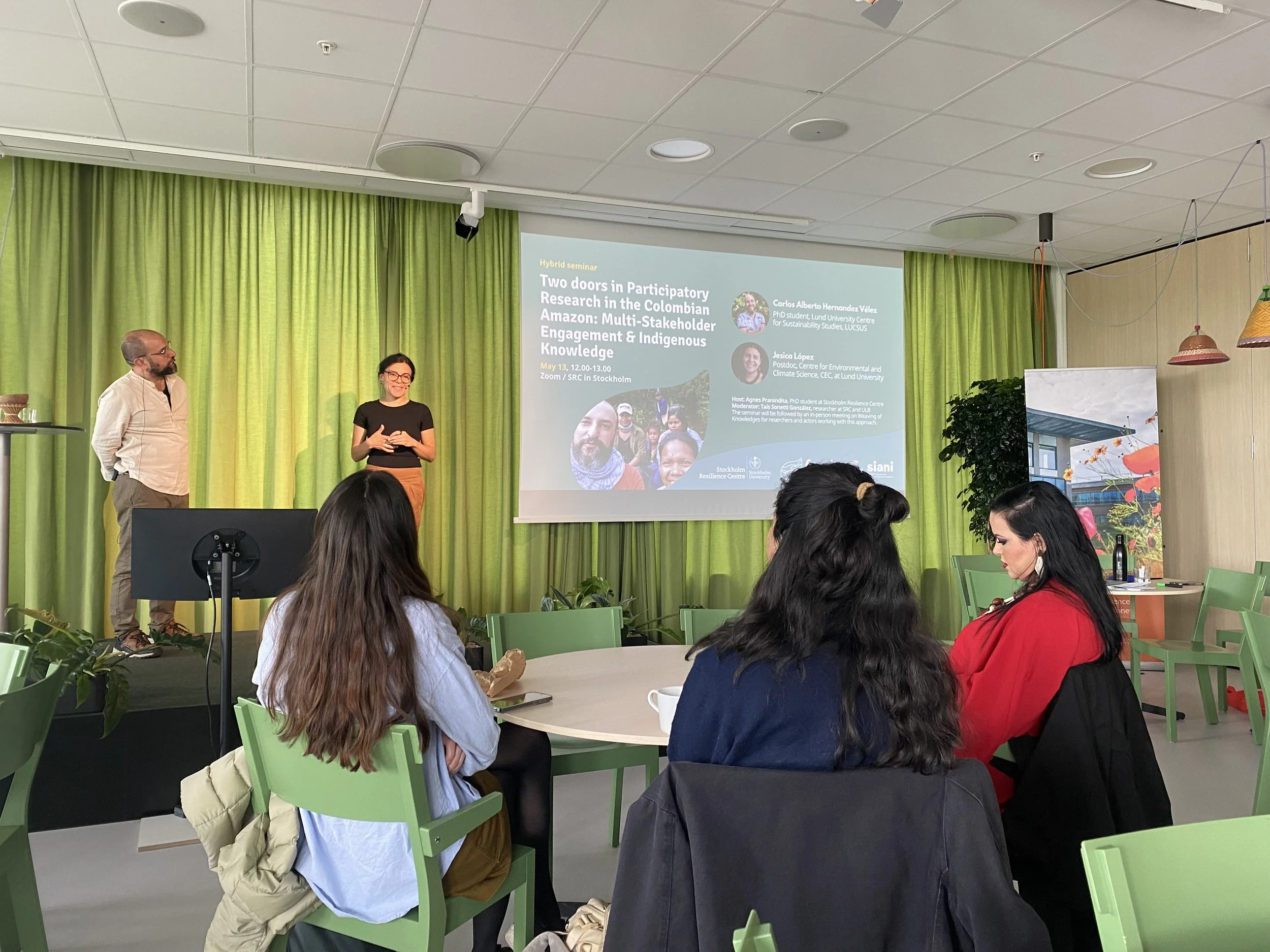
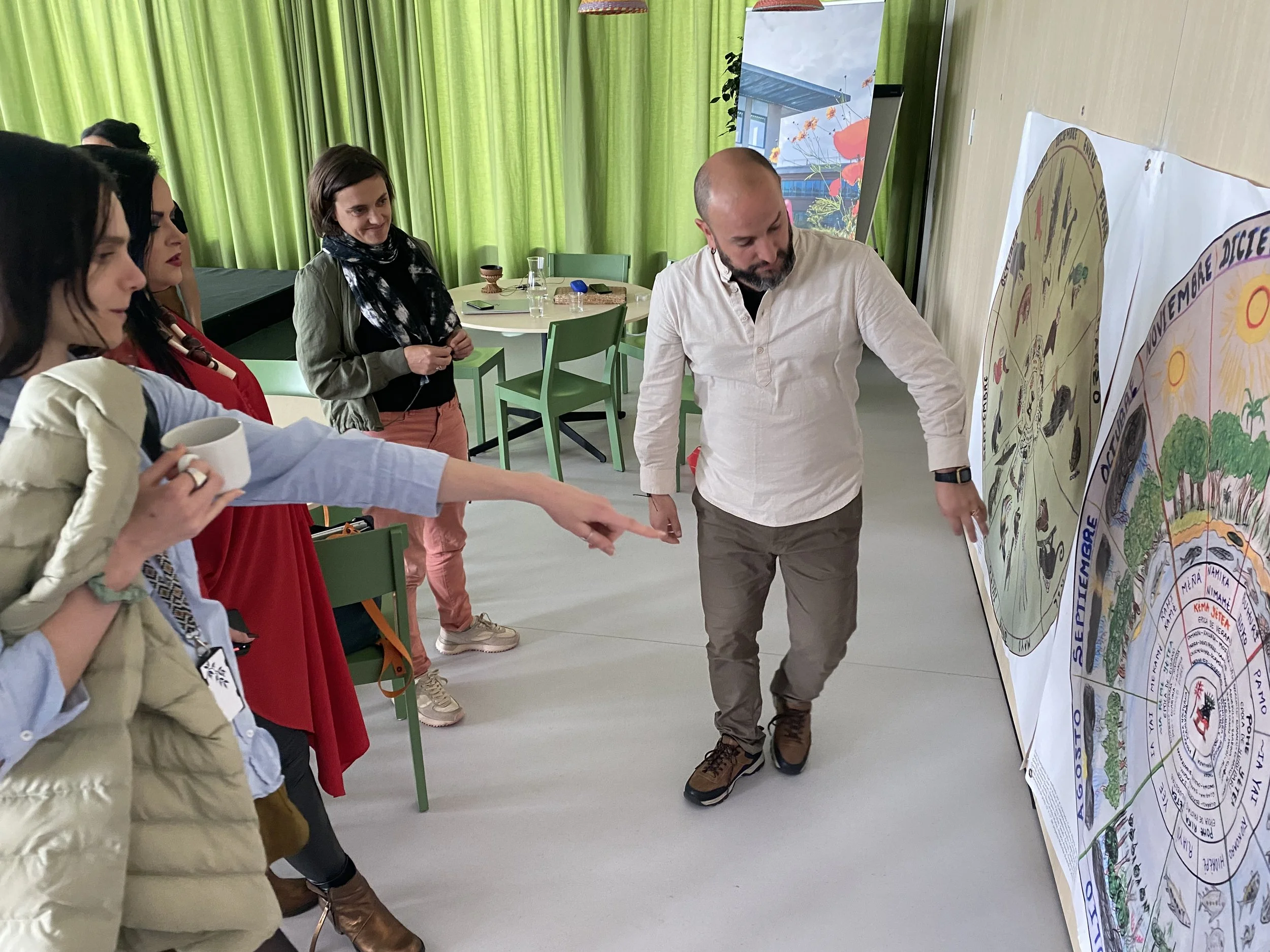
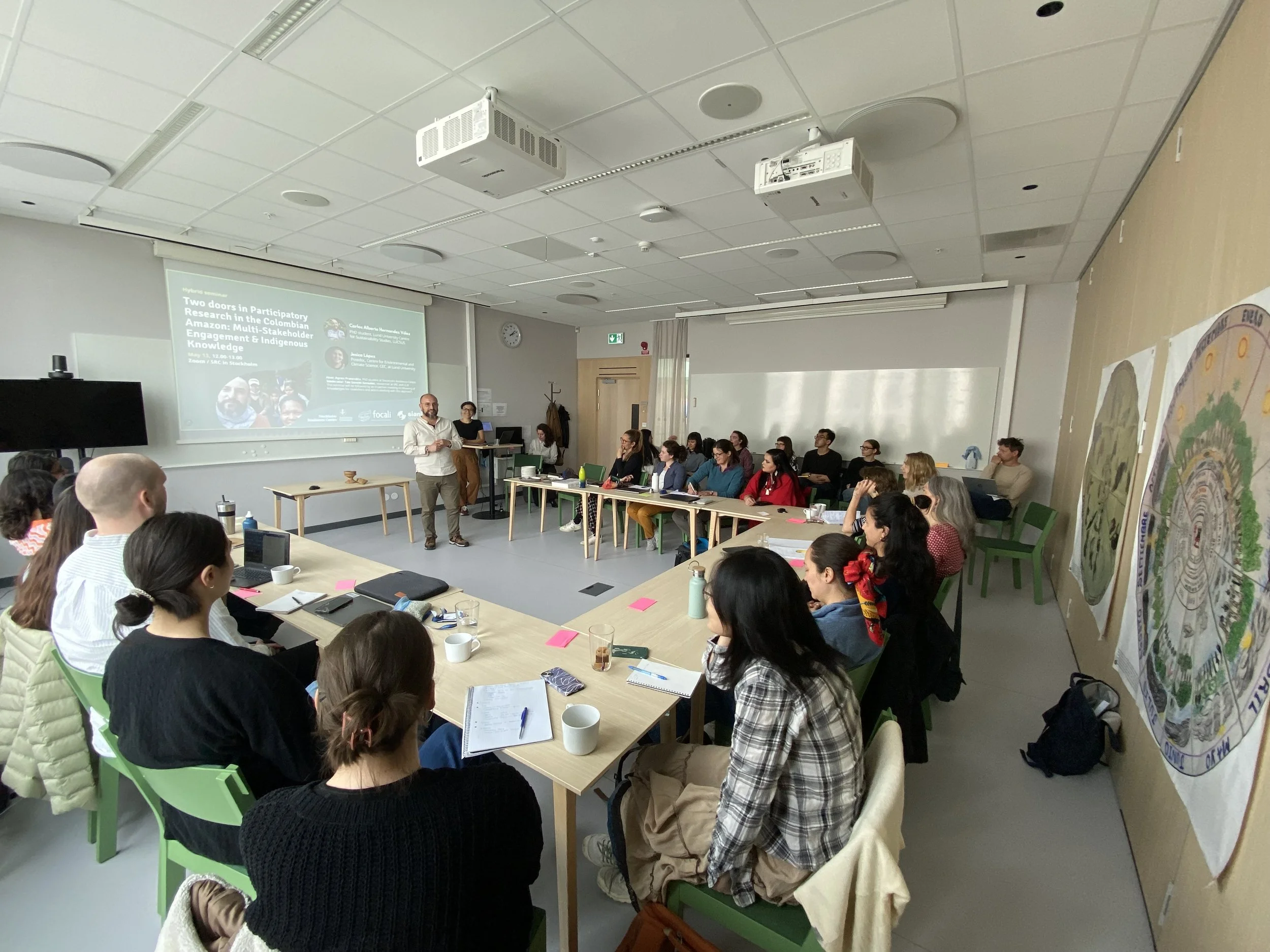
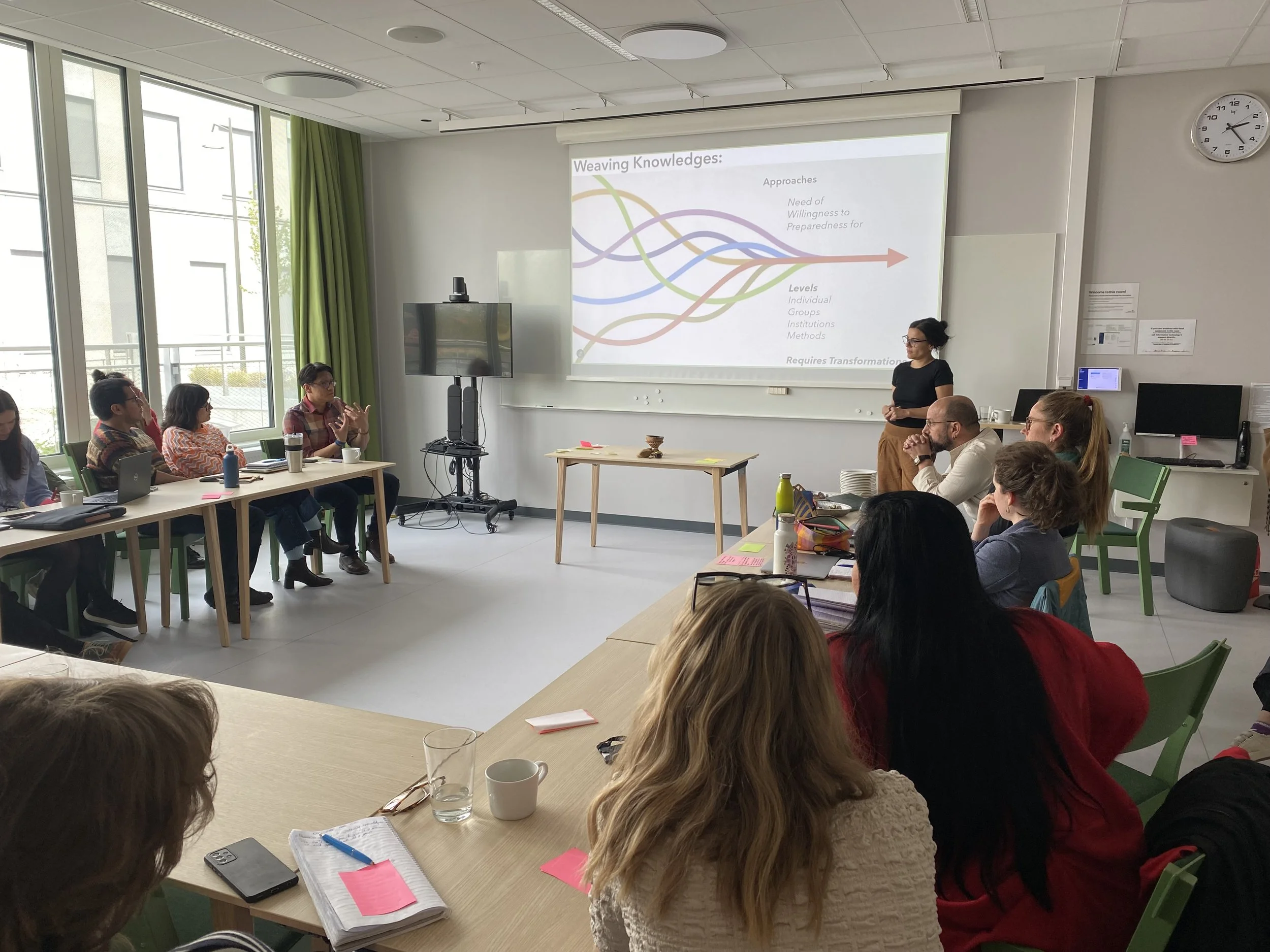
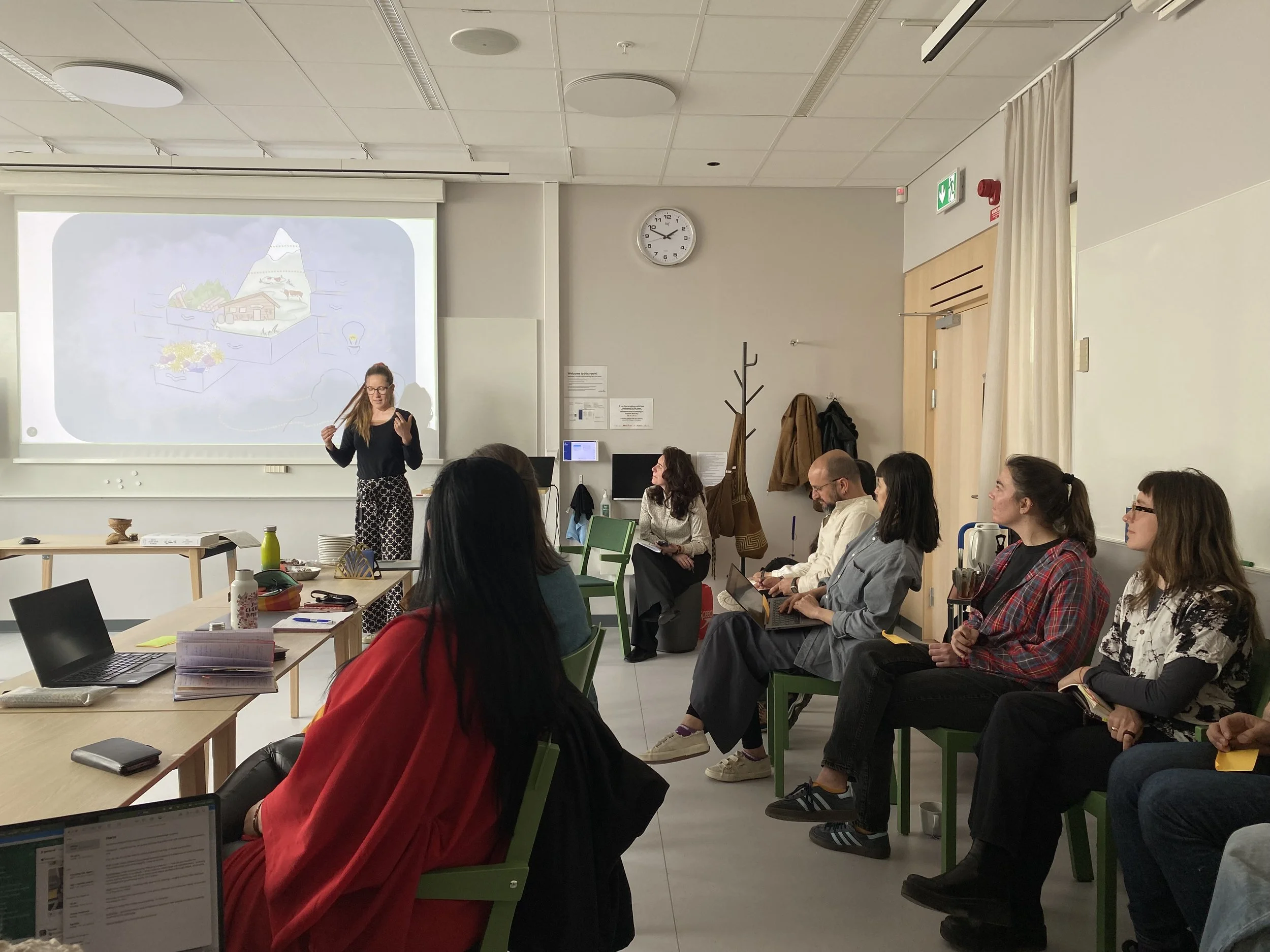
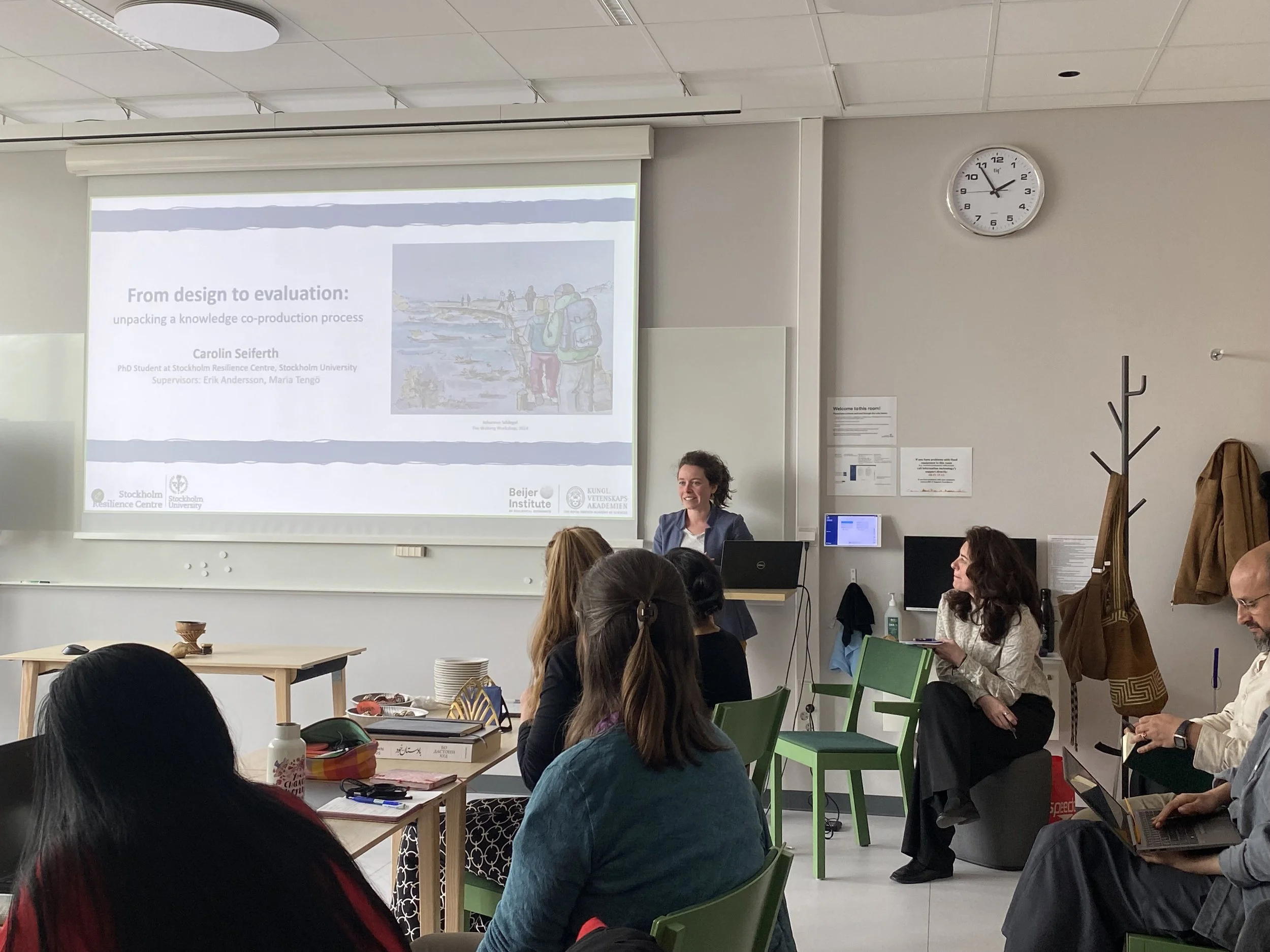
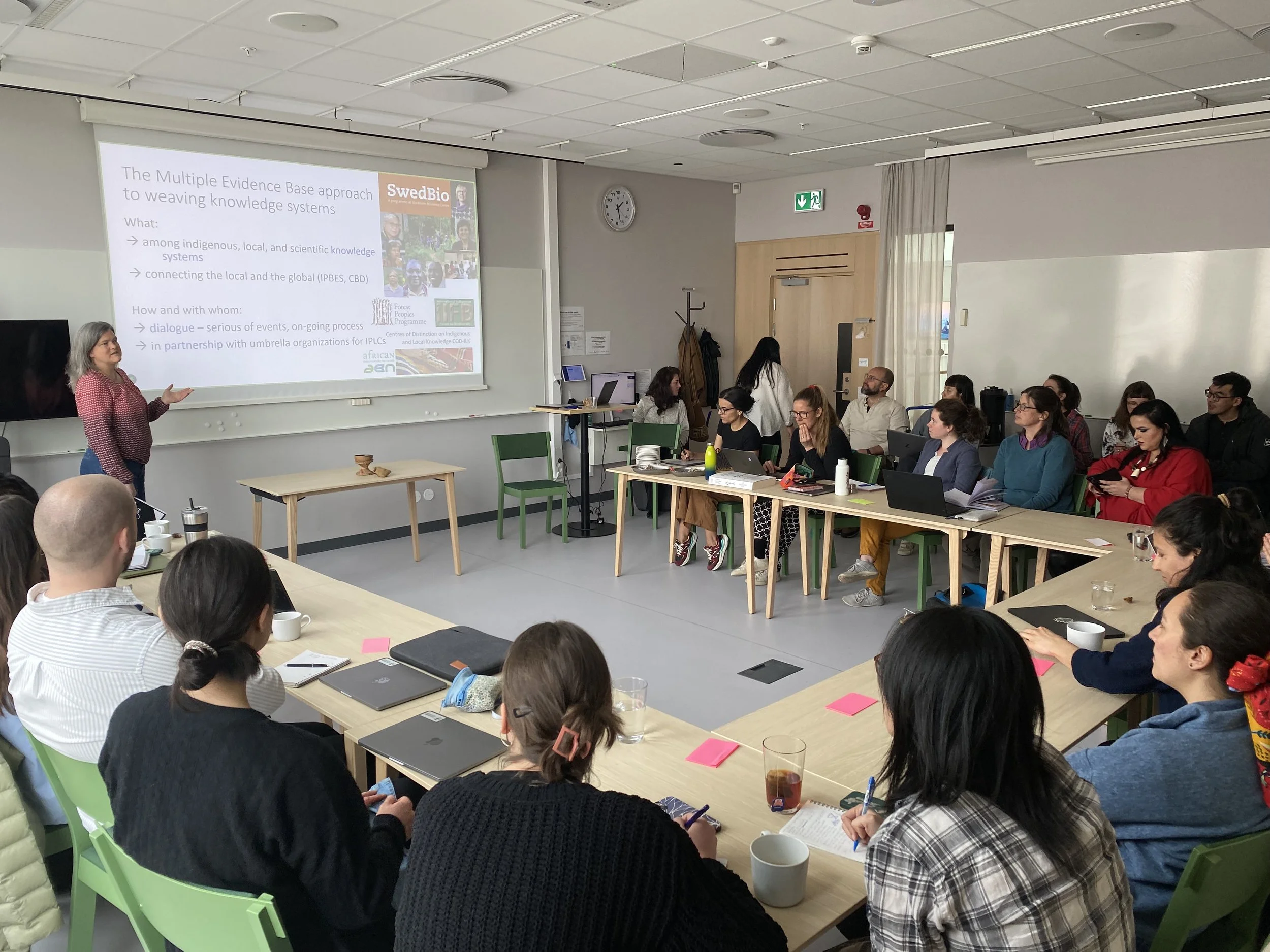
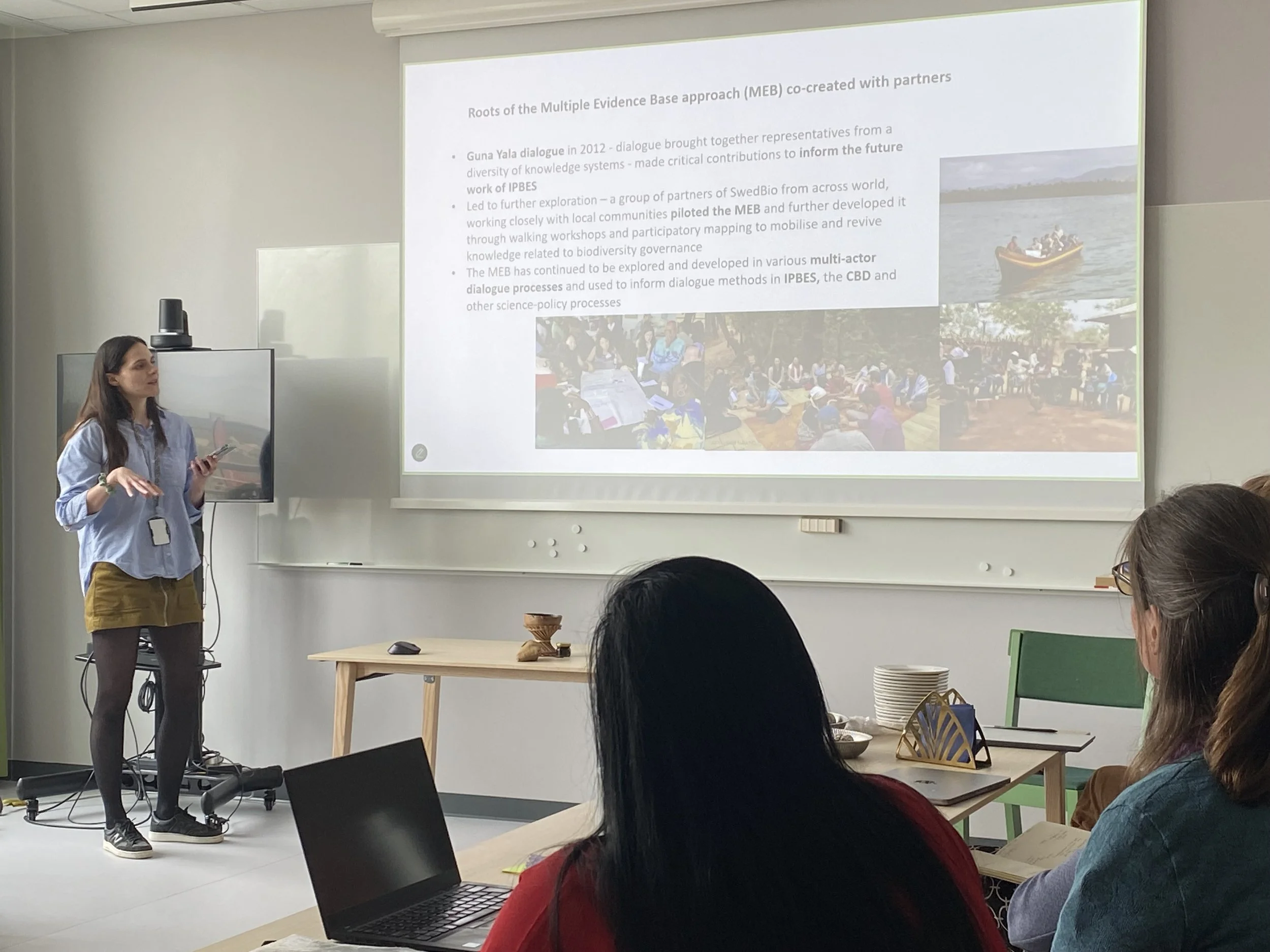

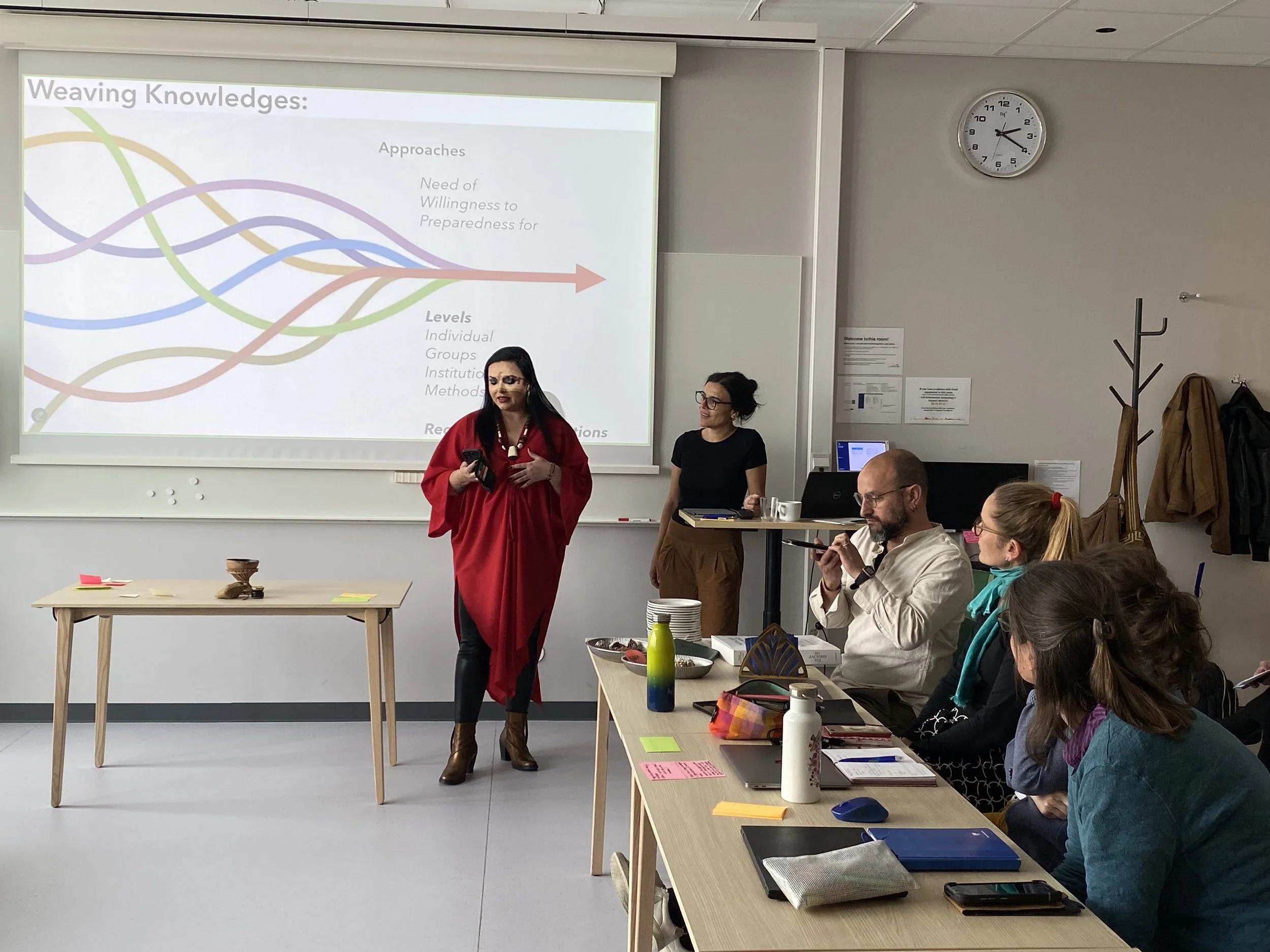

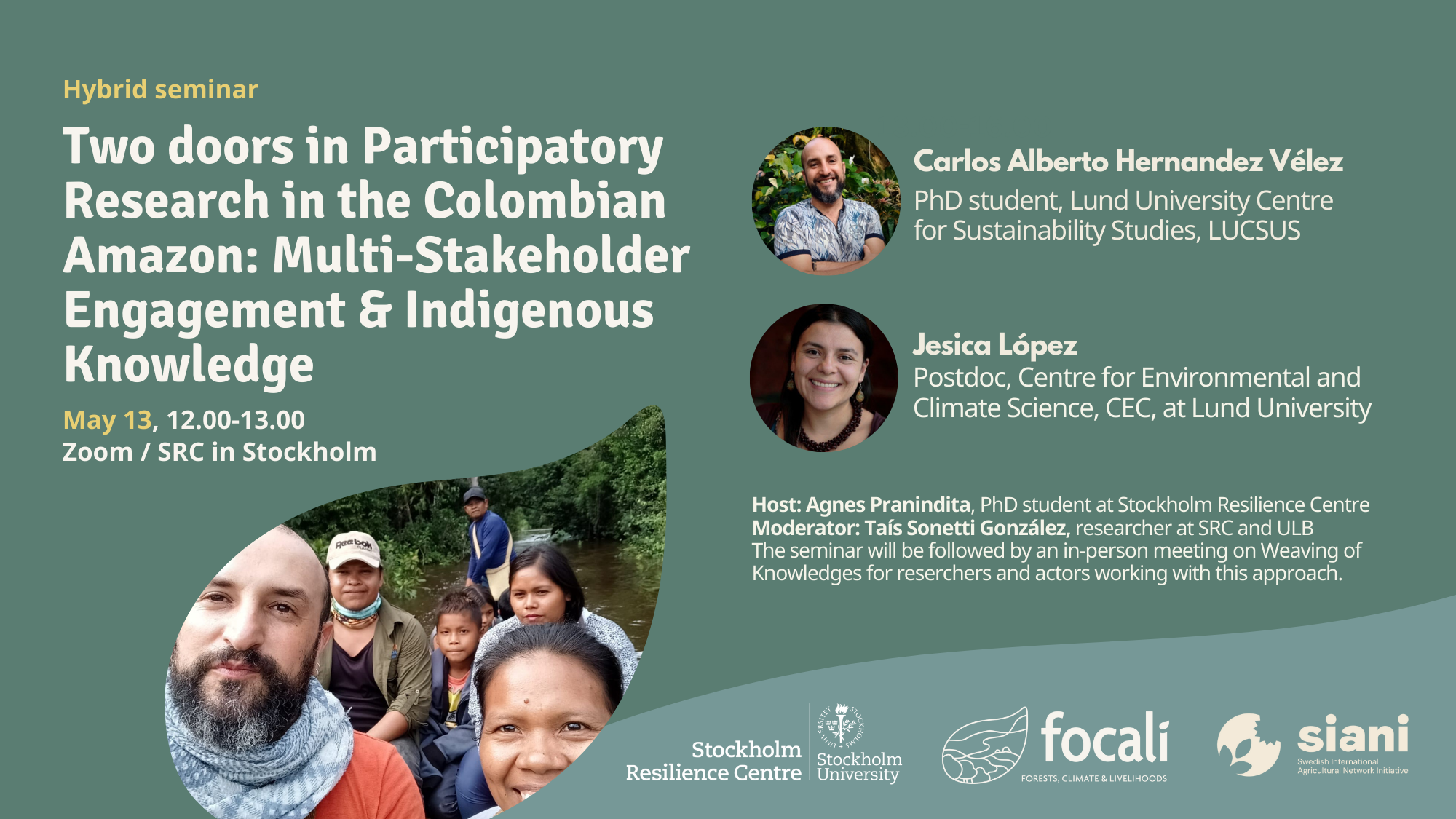
The seminar was co-arranged via two workstreams in the Focali research network; Weaving of Knowledges and the Early Career Researchers Hub in collaboration with Stockholm Resilience Centre and the Focali – SIANI partnership. It was held at Stockholm Resilience Centre on May 13. Initiator and host of the seminar at SRC was Agnes Pranindita, PhD Candidate at Stockholm Resilience Centre. The seminar was moderated by Taís Sonetti González, (then) researcher at Stockholm Resilience Centre and Université libre de Bruxelles. Two additional invited Focalimembers from Lund University were the main speakers in the seminar: Carlos Alberto Hernandez Vélez, PhD student, Lund University Centre for Sustainability Studies (LUCSUS) and Jesica López, (then) Postdoc, Centre for Environmental and Climate Science (CEC) at Lund University. The seminar was hybrid with on-site and online participants engaging in the discussion.
The seminar was followed by an on-site continued conversation on Weaving of Knowledges and possible collaboration areas ahead. In this roundtable additional researchers from SRC shared speed-talks on how they weave in their work across diverse contexts, disciplines and actors. Carlos and Jesica facilitating the discussion invited all participants to reflect on and share from their own personal weaving journeys with the intention to continue our dialogue on weaving ahead in different forms and spaces where a Focali “Weaving of Knowledges” workstream can be one forum to stay connected over time in the weaving process, to learn and re-learn, lending and receiving yarn in all sorts of colors and fibers from other weavers.
Images above are from the seminar with Carlos and Jesica as invited speakers and from the roundtable following the seminar where Swedbio and researchers at SRC shared glimpses from their own work and weaving. Speed-talks were held by: Maria Tengö, Lou Darriet, Liz Drury O’Neill, Jamila Haider, Carolin Seiferth and Romina Martin.
This seminar article as the day itself was co-woven by the event team with full names in the text above: Agnes, Taís, Carlos and Jesica - all members in the Focali research network.
If interested to join the Focali Weaving Knowledges work stream, Focali or collaborate on weaving ahead welcome to connect with Maria Ölund Focali Project Manager maria.olund@gu.se
Watch the recording of the seminar on Focali You Tube
